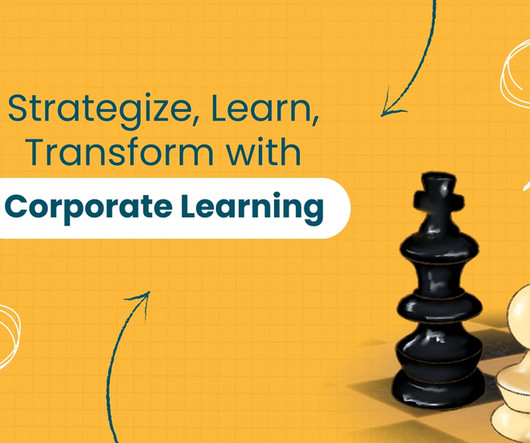This Is What I Believe About Learning in Organizations
The Performance Improvement Blog
SEPTEMBER 14, 2018
We know that people learn most from their co-workers and from on-the-job experience, yet we invest the most in formal, training programs. Consider the alternatives: just-in-time e-learning (desktop and mobile), coaching, mentoring, simulations, on-demand video, and experiential-learning. It’s the Culture.









































Let's personalize your content